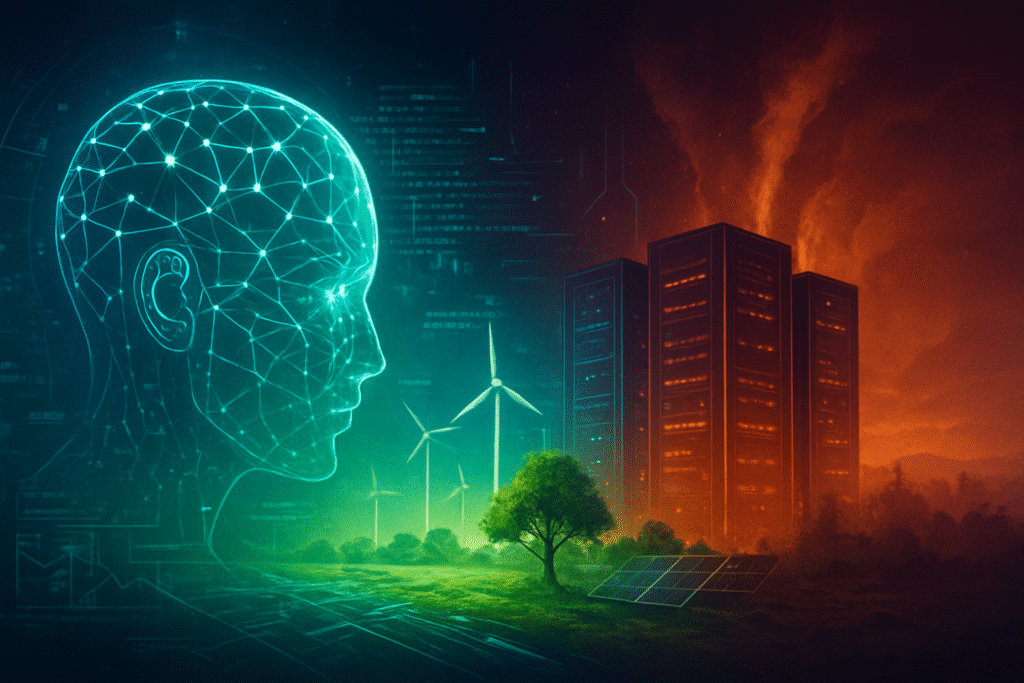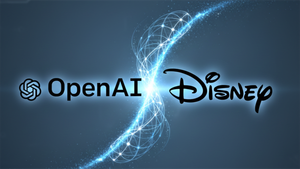
The 30th United Nations Climate Change Conference, COP30, held in Belém, Brazil, from November 10 to 21, 2025, has placed artificial intelligence (AI) at the heart of global climate discussions. As the world grapples with escalating environmental crises, AI has emerged as a compelling, yet contentious, tool in the arsenal against climate change. The summit has seen fervent advocates championing AI's transformative potential for mitigation and adaptation, while a chorus of critics raises alarms about its burgeoning environmental footprint and the ethical quandaries of its unregulated deployment. This critical juncture at COP30 underscores a fundamental debate: is AI the hero humanity needs, or a new villain in the climate fight?
Initial discussions at COP30 have positioned AI as a "cross-cutting accelerator" for addressing the climate crisis. Proponents highlight its capacity to revolutionize climate modeling, optimize renewable energy grids, enhance emissions monitoring, and foster more inclusive negotiations. The COP30 Presidency itself launched "Maloca," a digital platform with an AI-powered translation assistant, Macaozinho, designed to democratize access to complex climate diplomacy for global audiences, particularly from the Global South. Furthermore, the planned "AI Climate Academy" aims to empower developing nations with AI-led climate solutions. However, this optimism is tempered by significant concerns over AI's colossal energy and water demands, which, if unchecked, threaten to undermine climate goals and exacerbate existing inequalities.
Unpacking the AI Advancements: Precision, Prediction, and Paradox
The technical discussions at COP30 have unveiled a range of sophisticated AI advancements poised to reshape climate action, offering capabilities that significantly surpass previous approaches. These innovations span critical sectors, demonstrating AI's potential for unprecedented precision and predictive power.
Advanced Climate Modeling and Prediction: AI, particularly machine learning (ML) and deep learning (DL), is dramatically improving the accuracy and speed of climate research. Companies like Google's (NASDAQ: GOOGL) DeepMind with GraphCast are utilizing neural networks for global weather predictions up to ten days in advance, offering enhanced precision and reduced computational costs compared to traditional numerical simulations. NVIDIA's (NASDAQ: NVDA) Earth-2 platform integrates AI with physical simulations to deliver high-resolution global climate and weather predictions, crucial for assessing and planning for extreme events. These AI-driven models continuously adapt to new data from diverse sources (satellites, IoT sensors) and can identify complex patterns missed by traditional, computationally intensive numerical models, leading to up to a 20% improvement in prediction accuracy.
Renewable Energy Optimization and Smart Grid Management: AI is revolutionizing renewable energy integration. Advanced power forecasting, for instance, uses real-time weather data and historical trends to predict renewable energy output. Google's DeepMind AI has reportedly increased wind power value by 20% by forecasting output 36 hours ahead. IBM's (NYSE: IBM) Weather Company employs AI for hyper-local forecasts to optimize solar panel performance. Furthermore, autonomous AI agents are emerging for adaptive, self-optimizing grid management, crucial for coordinating variable renewable sources in real-time. This differs from traditional grid management, which struggled with intermittency and relied on less dynamic forecasting, by offering continuous adaptation and predictive adjustments, significantly improving stability and efficiency.
Carbon Capture, Utilization, and Storage (CCUS) Enhancement: AI is being applied across the CCUS value chain. It enhances carbon capture efficiency through dynamic process optimization and data-driven materials research, potentially reducing capture costs by 15-25%. Generative AI can rapidly screen hundreds of thousands of hypothetical materials, such as metal-organic frameworks (MOFs), identifying new sorbents with up to 25% higher CO2 capacity, drastically accelerating material discovery. This is a significant leap from historical CCUS methods, which faced barriers of high energy consumption and costs, as AI provides real-time analysis and predictive capabilities far beyond traditional trial-and-error.
Environmental Monitoring, Conservation, and Disaster Management: AI processes massive datasets from satellites and IoT sensors to monitor deforestation, track glacier melting, and assess oceanic changes with high efficiency. Google's flood forecasting system, for example, has expanded to over 80 countries, providing early warnings up to a week in advance and significantly reducing flood-related deaths. AI offers real-time analysis and the ability to detect subtle environmental changes over vast areas, enhancing the speed and precision of conservation efforts and disaster response compared to slower, less granular traditional monitoring.
Initial reactions from the AI research community and industry experts present a "double-edged sword" perspective. While many, including experts from NVIDIA and Google, view AI as a "breakthrough in digitalization" and "the best resource" for solving climate challenges "better and faster," there are profound concerns. The "AI Energy Footprint" is a major alarm, with the International Energy Agency (IEA) projecting global data center electricity use could nearly double by 2030, consuming vast amounts of water for cooling. Jean Su, energy justice director at the Center for Biological Diversity, describes AI as "a completely unregulated beast," pushing for mandates like 100% on-site renewable energy for data centers. Experts also caution against "techno-utopianism," emphasizing that AI should augment, not replace, fundamental solutions like phasing out fossil fuels.
The Corporate Calculus: Winners, Disruptors, and Strategic Shifts
The discussions and potential outcomes of COP30 regarding AI's role in climate action are set to profoundly impact major AI companies, tech giants, and startups, driving shifts in market positioning, competitive strategies, and product development.
Companies already deeply integrating climate action into their core AI offerings, and those prioritizing energy-efficient AI models and green data centers, stand to gain significantly. Major cloud providers like Alphabet's (NASDAQ: GOOGL) Google, Microsoft (NASDAQ: MSFT), and Amazon Web Services (NASDAQ: AMZN) are particularly well-positioned. Their extensive cloud infrastructures can host "green AI" services and climate-focused solutions, becoming crucial platforms if global agreements incentivize such infrastructure. Microsoft, for instance, is already leveraging AI in initiatives like the Northern Lights carbon capture project. NVIDIA (NASDAQ: NVDA), whose GPU technology is fundamental for computationally intensive AI tasks, stands to benefit from increased investment in AI for scientific discovery and modeling, as demonstrated by its involvement in accelerating carbon storage simulations.
Specialized climate tech startups are also poised for substantial growth. Companies like Capalo AI (optimizing energy storage), Octopus Energy (smart grid platform Kraken), and Dexter Energy (forecasting energy supply/demand) are directly addressing the need for more efficient renewable energy systems. In carbon management and monitoring, firms such as Sylvera, Veritree, Treefera, C3.ai (NYSE: AI), Planet Labs (NYSE: PL), and Pachama, which use AI and satellite data for carbon accounting and deforestation monitoring, will be critical for transparency. Startups in sustainable agriculture, like AgroScout (pest/disease detection), will thrive as AI transforms precision farming. Even companies like KoBold Metals, which uses AI to find critical minerals for batteries, stand to benefit from the green tech boom.
The COP30 discourse highlights a competitive shift towards "responsible AI" and "green AI." AI labs will face intensified pressure to develop more energy- and water-efficient algorithms and hardware, giving a competitive edge to those demonstrating lower environmental footprints. Ethical AI development, integrating fairness, transparency, and accountability, will also become a key differentiator. This includes investing in explainable AI (XAI) and robust ethical review processes. Collaboration with governments and NGOs, exemplified by the launch of the AI Climate Institute at COP30, will be increasingly important for legitimacy and deployment opportunities, especially in the Global South.
Potential disruptions include increased scrutiny and regulation on AI's energy and water consumption, particularly for data centers. Governments, potentially influenced by COP outcomes, may introduce stricter regulations, necessitating significant investments in energy-efficient infrastructure and reporting mechanisms. Products and services not demonstrating clear climate benefits, or worse, contributing to high emissions (e.g., AI optimizing fossil fuel extraction), could face backlash or regulatory restrictions. Furthermore, investor sentiment, increasingly driven by ESG factors, may steer capital towards AI solutions with verifiable climate benefits and away from those with high environmental costs.
Companies can establish strategic advantages through early adoption of green AI principles, developing niche climate solutions, ensuring transparency and accountability regarding AI's environmental footprint, forging strategic partnerships, and engaging in policy discussions to shape balanced AI regulations. COP30 marks a critical juncture where AI companies must align their strategies with global climate goals and prepare for increased regulation to secure their market position and drive meaningful climate impact.
A Global Reckoning: AI's Place in the Broader Landscape
AI's prominent role and the accompanying ethical debate at COP30 represent a significant moment within the broader AI landscape, signaling a maturation of the conversation around technology's societal and environmental responsibilities. This event transcends mere technical discussions, embedding AI squarely within the most pressing global challenge of our time.
The wider significance lies in how COP30 reinforces the growing trend of "Green AI" or "Sustainable AI." This paradigm advocates for minimizing AI's negative environmental impact while maximizing its positive contributions to sustainability. It pushes for research into energy-efficient algorithms, the use of renewable energy for data centers, and responsible innovation throughout the AI lifecycle. This focus on sustainability will likely become a new benchmark for AI development, influencing research priorities and investment decisions across the industry.
Beyond direct climate action, potential concerns for society and the environment loom large. The environmental footprint of AI itself—its immense energy and water consumption—is a paradox that threatens to undermine climate efforts. The rapid expansion of generative AI is driving surging demands for electricity and water for data centers, with projections indicating a substantial increase in CO2 emissions. This raises the critical question of whether AI's benefits outweigh its own environmental costs. Algorithmic bias and equity are also paramount concerns; if AI systems are trained on biased data, they could perpetuate and amplify existing societal inequalities, potentially disadvantaging vulnerable communities in resource allocation or climate adaptation strategies. Data privacy and surveillance issues, arising from the vast datasets required for many AI climate solutions, also demand robust ethical frameworks.
This milestone can be compared to previous AI breakthroughs where the transformative potential of a nascent technology was recognized, but its development path required careful guidance. However, COP30 introduces a distinct emphasis on the environmental and climate justice implications, highlighting the "dual role" of AI as both a solution and a potential problem. It builds upon earlier discussions around responsible AI, such as those concerning AI safety, explainable AI, and fairness, but critically extends them to encompass ecological accountability. The UN's prior steps, like the 2024 Global Digital Compact and the establishment of the Global Dialogue on AI Governance, provide a crucial framework for these discussions, embedding AI governance into international law-making.
COP30 is poised to significantly influence the global conversation around AI governance. It will amplify calls for stronger regulation, international frameworks, and global standards for ethical and safe AI use in climate action, aiming to prevent a fragmented policy landscape. The emphasis on capacity building and equitable access to AI-led climate solutions for developing countries will push for governance models that are inclusive and prevent the exacerbation of the global digital divide. Brazil, as host, is expected to play a fundamental role in directing discussions towards clarifying AI's environmental consequences and strengthening technologies to mitigate its impacts, prioritizing socio-environmental justice and advocating for a precautionary principle in AI governance.
The Road Ahead: Navigating AI's Climate Frontier
Following COP30, the trajectory of AI's integration into climate action is expected to accelerate, marked by both promising developments and persistent challenges that demand proactive solutions. The conference has laid a crucial groundwork for what comes next.
In the near-term (post-COP30 to ~2027), we anticipate accelerated deployment of proven AI applications. This includes further enhancements in smart grid and building energy efficiency, supply chain optimization, and refined weather forecasting. AI will increasingly power sophisticated predictive analytics and early warning systems for extreme weather events, with "digital similars" of cities simulating climate impacts to aid in resilient infrastructure design. The agriculture sector will see AI optimizing crop yields and water management. A significant development is the predicted emergence of AI agents, with Deloitte projecting that 25% of enterprises using generative AI will deploy them in 2025, growing to 50% by 2027, automating tasks like carbon emission tracking and smart building management. Initiatives like the AI Climate Institute (AICI), launched at COP30, will focus on building capacity in developing nations to design and implement lightweight, low-energy AI solutions tailored to local contexts.
Looking to the long-term (beyond 2027), AI is poised to drive transformative changes. It will significantly advance climate science through higher-fidelity simulations and the analysis of vast, complex datasets, leading to a deeper understanding of climate systems and more precise long-term predictions. Experts foresee AI accelerating scientific discoveries in fields like material science, potentially leading to novel solutions for energy storage and carbon capture. The ultimate potential lies in fundamentally redesigning urban planning, energy grids, and industrial processes for inherent sustainability, creating zero-emissions districts and dynamic infrastructure. Some even predict that advanced AI, potentially Artificial General Intelligence (AGI), could arrive within the next decade, offering solutions to global issues like climate change that exceed the impact of the Industrial Revolution.
However, realizing AI's full potential is contingent on addressing several critical challenges. The environmental footprint of AI itself remains paramount; the energy and water demands of large language models and data centers, if powered by non-renewable sources, could significantly increase carbon emissions. Data gaps and quality, especially in developing regions, hinder effective AI deployment, alongside algorithmic bias and inequality that could exacerbate social disparities. A lack of digital infrastructure and technical expertise in many developing countries further impedes progress. Crucially, the absence of robust ethical governance and transparency frameworks for AI decision-making, coupled with a lag in policy and funding, creates significant obstacles. The "dual-use dilemma," where AI can optimize both climate-friendly and climate-unfriendly activities (like fossil fuel extraction), also demands careful consideration.
Despite these hurdles, experts remain largely optimistic. A KPMG survey for COP30 indicated that 97% of executives believe AI will accelerate net-zero goals. The consensus is not to slow AI development, but to "steer it wisely and strategically," integrating it intentionally into climate action plans. This involves fostering enabling conditions, incentivizing investments in high social and environmental return applications, and regulating AI to minimize risks while promoting renewable-powered data centers. International cooperation and the development of global standards will be crucial to ensure sustainable, transparent, and equitable AI deployment.
A Defining Moment for AI and the Planet
COP30 in Belém has undoubtedly marked a defining moment in the intertwined histories of artificial intelligence and climate action. The conference served as a powerful platform, showcasing AI's immense potential as a transformative force in addressing the climate crisis, from hyper-accurate climate modeling and optimized renewable energy grids to enhanced carbon capture and smart agricultural practices. These technological advancements promise unprecedented efficiency, speed, and precision in our fight against global warming.
However, COP30 has equally underscored the critical ethical and environmental challenges inherent in AI's rapid ascent. The "double-edged sword" narrative has dominated, with urgent calls to address AI's substantial energy and water footprint, the risks of algorithmic bias perpetuating inequalities, and the pressing need for robust governance and transparency. This dual perspective represents a crucial maturation in the global discourse around AI, moving beyond purely speculative potential to a pragmatic assessment of its real-world impacts and responsibilities.
The significance of this development in AI history cannot be overstated. COP30 has effectively formalized AI's role in global climate policy, setting a precedent for its integration into international climate frameworks. The emphasis on "Green AI" and capacity building, particularly for the Global South through initiatives like the AI Climate Academy, signals a shift towards more equitable and sustainable AI development practices. This moment will likely accelerate the demand for energy-efficient algorithms, renewable-powered data centers, and transparent AI systems, pushing the entire industry towards a more environmentally conscious future.
In the long term, the outcomes of COP30 are expected to shape AI's trajectory, fostering a landscape where technological innovation is inextricably linked with environmental stewardship and social equity. The challenge lies in harmonizing AI's immense capabilities with stringent ethical guardrails and robust regulatory frameworks to ensure it serves humanity's best interests without compromising the planet.
What to watch for in the coming weeks and months:
- Specific policy proposals and guidelines emerging from COP30 for responsible AI development and deployment in climate action, including standards for energy consumption and emissions reporting.
- Further details and funding commitments for initiatives like the AI Climate Academy, focusing on empowering developing countries with AI solutions.
- Collaborations and partnerships between governments, tech giants, and civil society organizations focused on "Green AI" research and ethical frameworks.
- Pilot projects and case studies demonstrating successful, ethically sound AI applications in various climate sectors, along with rigorous evaluations of their true climate impact.
- Ongoing discussions and developments in AI governance at national and international levels, particularly concerning transparency, accountability, and the equitable sharing of AI's benefits while mitigating its risks.
This content is intended for informational purposes only and represents analysis of current AI developments.
TokenRing AI delivers enterprise-grade solutions for multi-agent AI workflow orchestration, AI-powered development tools, and seamless remote collaboration platforms.
For more information, visit https://www.tokenring.ai/.





